All You Need To Know About Broadcast Mixers

Whether you are producing music, a podcast, or an online radio show, you will need a high-quality mixer to get the job done well. And whether you are working with a limited budget or ready to make a major investment, there are outstanding broadcast mixer options at every level.
What is a Mixer?
A broadcast mixer (also called an audio mixer, desk, or console) is a device that combines audio input sources to create a single “mixed” output. In other words, it takes the audio from various sources – microphones, instruments, and recordings – and melds them into one output.
There are many different sizes and types of mixers, with price points that range from under $100 to tens of thousands of dollars, each with varying capabilities. Some can only combine signals, while others can integrate power amps, record, incorporate signal processing, and complete a whole host of other tasks. There are even audio mixers that are equipped with automation, making it easier than ever to control the final results.
How Mixers Work
The basic operation of an audio mixer is the same, no matter what model you’re working with. A mixer combines input signals (from sources such as instruments or microphones), then sends them to output jacks connected to loudspeakers.
The key differences between audio mixers have to do with navigation and additional features.
The Most Popular Mixer Types
When you are on the hunt for a quality audio mixer, you will want to consider exactly what you plan on using it for. Here’s a quick overview of some of the most common types of mixers and their most important features.
Mixers for Sound Reinforcement for Live Performances
- Designed to be easily portable since they will be used in a variety of settings/venues
- Extremely reliable because live performances can’t be “replayed” if there is a tech issue
- Versatility is a must to accommodate a range of mixing scenarios
- Allow for separate mixes for the audience and performers
Mixers for Recording Studios
- Engineered with multiple outputs, allowing for headphone mixes, studio/control room monitors, and more.
- Capable of computer interfacing so that you can route signals into digital recording software as needed
- Often take the form of an all-in-one mixer and recorder to save money and space
Field Mixing: Live Broadcast, Recording, Production
- Usually, battery operation is a top priority, as is the option to connect additional battery packs (since you’ll be working in the field)
- Built to withstand outdoor use
- Easily portable
- Operates with minimal noise so as not to interfere with the recording
- It may integrate onboard recording features, so you won’t need to pack extra gear for recording.
Mixers for Podcasting
- New mixer designs are available specifically for recording podcasts, integrating features like Bluetooth functionality, memory for sound effects, and low-cut filters.
- Allow for recording directly to flash drives or SD memory cards.
- Some podcasting mixers use a USB interface, allowing you to easily send and receive audio to and from mobile devices/computers.
DJ (Disk Jockey), EDM (Electronic Dance Music) Mixers
- Compact design with remote control operation for playback devices
- Usually feature two sets of stereo, line-level inputs for pair of turntables, CD players, and other sources.
- Horizontal crossfaders feed the headphone and main outputs, so you can easily transition between two different audio sources.
Want to Have a Future in Audio Production or Broadcasting?
You can have access to the best broadcast mixers on the market, but without technical skills and expertise, you won’t get far. If you want to pursue a career in the media industry – whether you dream of working in audio production, TV/radio broadcasting or another field – you will need a solid foundation of education and training.
At the Beonair Network of Media Schools, with campuses located in Miami, Chicago, Colorado, and Ohio, students can choose from a diverse range of programs tailored to their career interests. Our Radio & TV Broadcasting program can prepare you to apply for broadcasting jobs, while our Audio Production program can help you gain the skills to stand out as a future pro.
Not sure what the best jobs in media might be for you? Then our Digital Media Production program – where you can explore many different facets of the industry – could be the perfect fit.
Start Working Towards a Career in Media Today!
If you take action now, you could land your dream job in less than a year – what are you waiting for? Contact us for more information about our media training schools, and apply now!






